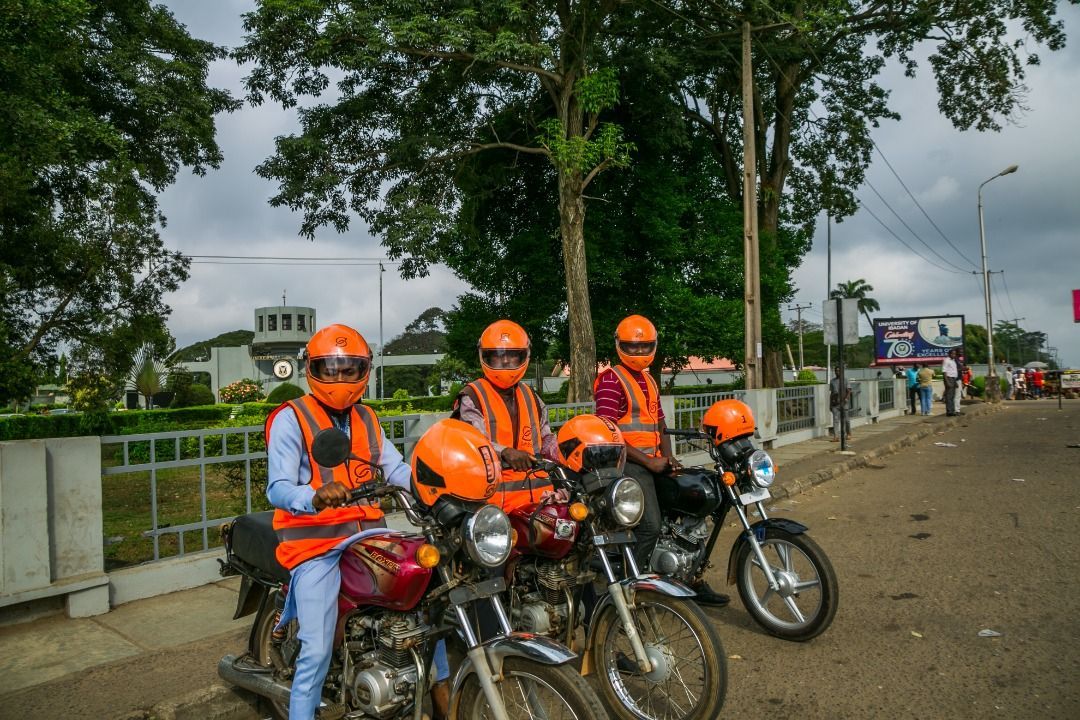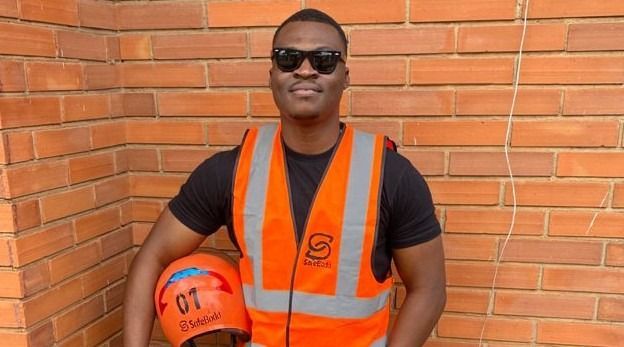In 2 years, SafeBoda has recorded over 3 million rides in Nigeria. What’s next?
Since January 2020 when SafeBoda started operations in Nigeria, it has made with over 3 million rides made by over 10,000 riders and over 100,000 passengers.

How SafeBoda is powering mobility and logistics in Ibadan, Nigeria.
In 2020, a report by South African think-tank Cenfri collated pre-pandemic data which had Nigeria accounting for about $292 million out of the $2.5 billion in revenue projected for Africa’s entire e-hailing industry that year.
Last week, Uganda-based, two-wheel ride-hailing platform SafeBoda marked exactly two years since its launch in Ibadan, a southwestern city in Nigeria. In December 2019 [started operations in January 2020] when SafeBoda launched in Ibadan instead of Lagos, many saw it as a wrong move, however, the Lagos State government announced a new regulation that rendered bike-hailing operations obsolete in February 2020.
SafeBoda has continued to wax strong in one of Nigeria’s populous cities with over 3 million rides made by over 10,000 riders and over 100,000 passengers. On the logistics end, the Ugandan startup has completed more than 50,000 deliveries in Ibadan, Nigeria. This is a notable feat in the African market.
Even though SafeBoda’s operations in Nigeria is only in Ibadan at the moment, the startup intends to expand across other locations in the country. “There are plans for expansion but that is under mum at the moment,” SafeBoda told Benjamindada
Also important to note is that, its pioneer Nigeria Country Manager, Babajide Duroshola left the startup last year and was replaced by Olaoluwa Arokoyu in June 2021. Prior to this role, Arokoyu was the Head of Operations at SafeBoda, he also led operations at Jumia and Opay.

“Better standard of living for drivers and customers.”
To enable its growth, SafeBoda is focused on the well-being of the people that make up the company. “Every single ride that a customer takes means so much more. Every ride means increased earning power for our riders. As a result of this increased earning power, SafeBoda riders and their families have access to a more quality lifestyle.”
According to Obaroeroro Clement Johnson, the Growth Manager of SafeBoda in Nigeria, “the Okada or Boda business isn’t categorized to be prestigious within African communities but with a touch of orange, the story is different. SafeBoda riders are highly regarded and respected, not just because of the colour but because of their conduct.”
Underscoring this new narrative, one of the riders, Ghazali Saheed said that “the best thing about SafeBoda is the respect we get from customers that other riders don’t get. Safeboda also makes it easy to set targets and reach them. It's easy for us to know where to get a lot of orders so that we can easily reach our targets.”
The Ride-hailing business in Africa is fast becoming a net employer of labour and helping thousands of individuals put food on the table.
When challenges like fuel scarcity — as it is now across Nigeria — come up, the mobility startup leverages partnerships that will insulate both the riders and customers from the impact, like reduced income for riders and a hike in ride fares for customers.
Related: Alternatives to Uber and Bolt: Ride-hailing companies in Nigeria
How is SafeBoda approaching roadblocks?
“Educating customers and riders on how to use our tech-driven platforms” has been a major challenge for the startup. However, SafeBoda has continued to train its riders on how to use the app through the assistance of its customer support agents, driver managers and rider-mentors.
“Aside from acquiring customers, we also educate the customers on using the app adequately.” Murewa Olubela, a Marketing staff at SafeBoda Nigeria stated.
Meanwhile, competition is heating up in Ibadan’s ride-hailing ecosystem. Uber, one of the leading global mobility companies launched UberMoto in Ibadan joining SafeBoda and other ride-hailing startups like MaxNG, ORide, and Gokada. “The sky is wide enough for all birds to fly, healthy competition is always good for business.” Olaoluwa Arokoyu, SafeBoda’s Nigeria Country Manager stated.
Adding that “we have been expecting this to happen and now that it has, we are not worried. Our focus is to keep giving the best experience to our customers and keeping our riders happy and willing to complete more rides daily.”
Despite its pan-African success, SafeBoda struggled in its third market, Kenya — a market it expanded to and left before Nigeria. The company had onboarded over 1,500 riders in less than a year in Kenya, but it wasn’t growing at the pace it wanted.
As riders’ dissatisfaction with pricing caused an upheaval that sent the company out of the Kenyan market. However, SafeBoda is one of the most active bike-hailing companies in sub-Saharan Africa as it holds more than 80% market share in Uganda and Nigeria.






